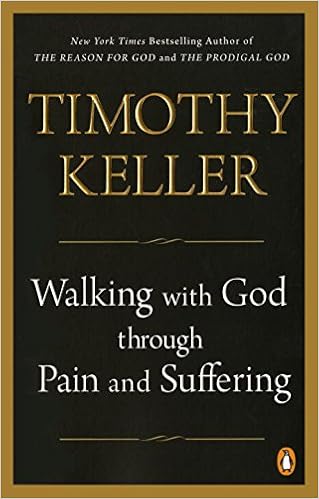 I’m not referring to a music genre. I’m using Paul’s word in 1 Corinthians 12:1—“Now concerning spiritual gifts, brothers, I do not want you to be uninformed.” The word “gifts” is absent from the Greek (showing up in 12:4); hence, “spirituals” (pneumatikown).
I’m not referring to a music genre. I’m using Paul’s word in 1 Corinthians 12:1—“Now concerning spiritual gifts, brothers, I do not want you to be uninformed.” The word “gifts” is absent from the Greek (showing up in 12:4); hence, “spirituals” (pneumatikown).
Before we embark (the spiritual gifts topic continues through chapter 14), we should note the cessationist/continuationist debate. Cessantionists believe spiritual gifts ceased with the death of the last of the twelve apostles. Continuationists believe (duh) gifts continue and will until Jesus comes again.
This is more than counting angels on a pinhead. If the gifts have ceased, 1 Corinthians 12 and 14 have no meaning for us today (nor do Romans 12:5-8 or 1 Peter 4:10,11)—unless the cessationist is eliminating only the “spectacular” gifts like prophecy, healing and tongues (gets confusing, doesn’t it).
The links below present both positions well and are worth reading. If the first one convinces you, no need to continue reading this post.
https://www.thegospelcoalition.org/article/why-i-am-a-cessationisthttps://www.thegospelcoalition.org/article/why-i-am-a-continuationist
We don’t know if the Corinthians had asked about spiritual gifts (7:1), but we do know Paul wants them “in the know” about pneumatikown.
Now concerning spiritual gifts, brothers and sisters, I do not want you to be uninformed (1 Corinthians 12:1).
What he first wants them to know comes unexpectedly . . .
You know that when you were pagans, you were enticed and led astray to idols that could not speak (1 Corinthians 12:2).
Paul has in view their former experiences of “inspired utterances” as pagans. Even though idols are “mute”, demons lurk behind them (10:20) and inspire the utterances featured in idol-worship.
Why, though, did Paul bring that up? He wants the Corinthians to know that “inspired” speech in itself is not evidence of the Holy Spirit.
In one church I pastored, a dear old saintly woman invariably gave a message in tongues at the end of our worship singing. It came like clockwork and eventually distracted. When I cautioned her about it, she left the church. Were her messages from the Holy Spirit? I don’t know. But inspired speaking in and of itself is not necessarily Spirit-prompted.
Therefore I want you to understand that no one speaking by the Spirit of God ever says “Let Jesus be cursed!” and no one can say “Jesus is Lord” except by the Holy Spirit (1 Corinthians 12:3).
Paul is saying, “Since I don’t want you to be uninformed about things of the Spirit, and since you’re familiar with inspired utterances from your pagan days, I want you to understand ‘that no one speaking by the Spirit of God ever says, “Let Jesus be cursed!” and no one can say “Jesus is Lord” except by the Holy Spirit.’”
Did anyone, purportedly influenced by the Spirit, actually say, “Let Jesus be cursed”? We’re not told. But we can agree Paul is making at least three assertions. One, the content of “Spirit-speaking” is crucial. Not its length or volume or “theatrics”, but its content. And, by implication, the content must harmonize with the gospel.
Two, it follows, then, that the content of the utterance determines its source. If it harmonizes with the gospel, it’s Spirit-given. If it doesn’t, it isn’t (no matter how it feels!).
And, three, only the Holy Spirit can inspire anyone to confess “Jesus is Lord”. Anybody can merely mouth the words. But only by the Spirit can a sinful human profess absolute allegiance to Jesus as his God and Master of the universe.
* * * * *
I’m a continuationist (or I wouldn’t waste time commenting on 1 Corinthians 12-14). However, I’m not ignorant of excess and abuse in the charismatic camp. Growing up in a Pentecostal church, for example, I saw the reverential place accorded a message in tongues, and how it sometimes became an automatic part of the worship order. Worse abuses have occurred; but I’ve seen them mostly on TV, rarely in person.
I’m convinced some Christians are cessationist because of these abuses. A second reason (in my opinion) is that some cessationist pastors actually fear giving people freedom in worship to respond to the Spirit (but I digress).
The important take-away for us is this: the Holy Spirit will always exalt the Lord Jesus. In fact, as Paul says, the Holy Spirit will enable one to say, “Jesus is Lord”. This is astounding. To say “Jesus is Lord” is to say he is the Yahweh (LORD) of the Old Testament. To say “Jesus is Lord” is to say he is God. To say “Jesus is Lord” is to say he is worthy of absolute allegiance. To say “Jesus is Lord” is to say what every human will be finally compelled to acknowledge. And only the Holy Spirit can enable a self-seeking, self-centered sinner to utter that confession.
Someone has said, “The Holy Spirit is the shy member of the Trinity.” In other words, he doesn’t draw attention to himself, but to Jesus. Spiritual gifts are another way God the Father has given us to glorify his Son. They weren’t given to stir up controversy. Nor were they given for a mere 70 years. They were given to glorify Jesus in his church until he comes for us.
So, as we embark on Paul’s words about spiritual gifts in 1 Corinthians 12-14, we don’t want to pursue them for their own sake. We want to seek them for Jesus’ sake: that he might be glorified in his church as we experience the dynamic of his presence among his gathered people.


Recent Comments